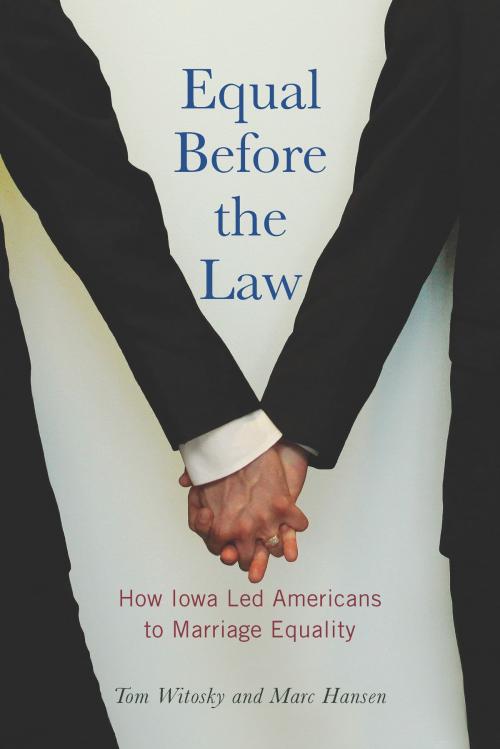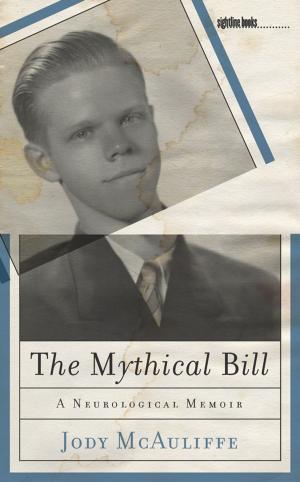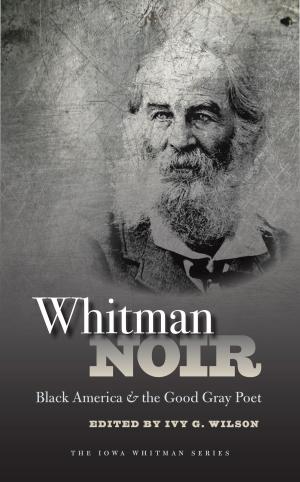Equal Before the Law
How Iowa Led Americans to Marriage Equality
Nonfiction, Social & Cultural Studies, Social Science, Gender Studies, Gay Studies| Author: | Tom Witosky, Marc Hansen | ISBN: | 9781609383503 |
| Publisher: | University of Iowa Press | Publication: | June 1, 2015 |
| Imprint: | University Of Iowa Press | Language: | English |
| Author: | Tom Witosky, Marc Hansen |
| ISBN: | 9781609383503 |
| Publisher: | University of Iowa Press |
| Publication: | June 1, 2015 |
| Imprint: | University Of Iowa Press |
| Language: | English |
“We’ve been together in sickness and in health, through the death of his mother, through the adoption of our children, through four long years of this legal battle,” Jason Morgan told reporters of himself and his partner, Chuck Swaggerty. “And if being together through all of that isn’t love and commitment or isn’t family or isn’t marriage, then I don’t know what is.” Just minutes earlier on that day, April 3, 2009, the justices of the Iowa Supreme Court had agreed.
The court’s decision in Varnum v. Brien made Iowa only the third state in the nation to permit same-sex couples to wed—moderate, midwestern Iowa, years before such left-leaning coastal states as California and New York. And unlike the earlier decisions in Massachusetts and Connecticut, Varnum v. Brien was unanimous and unequivocal. It catalyzed the unprecedented and rapid shift in law and public opinion that continues today.
Equal Before the Law tells the stories behind this critical battle in the fight for marriage equality and traces the decision’s impact. The struggle began in 1998 with the easy passage of Iowa’s Defense of Marriage Act and took a turn, surprising to many, in 2005, when six ordinary Iowa couples signed on to Lambda Legal’s suit against the law. Their triumph in 2009 sparked a conservative backlash against the supreme court justices, three of whom faced tough retention elections that fall.
Longtime, award-winning reporters Tom Witosky and Marc Hansen talked with and researched dozens of key figures, including opponent Bob Vander Plaats, proponents Janelle Rettig and Sharon Malheiro, attorneys Roger Kuhle, Dennis Johnson, and Camilla Taylor, and politicians Matt McCoy, Mary Lundby, and Tom Vilsack, who had to weigh their careers against their convictions. Justice Mark Cady, who wrote the decision, explains why the court had to rule in favor of the plaintiffs. At the center of the story are the six couples who sacrificed their privacy to demand public respect for their families.
Through these voices, Witosky and Hansen show that no one should have been surprised by the 2009 decision. Iowans have a long history of leadership on civil rights. Just a year after Iowa became a state, its citizens adopted as their motto the phrase, “Our liberties we prize and our rights we will maintain.” And they still do today.
“We’ve been together in sickness and in health, through the death of his mother, through the adoption of our children, through four long years of this legal battle,” Jason Morgan told reporters of himself and his partner, Chuck Swaggerty. “And if being together through all of that isn’t love and commitment or isn’t family or isn’t marriage, then I don’t know what is.” Just minutes earlier on that day, April 3, 2009, the justices of the Iowa Supreme Court had agreed.
The court’s decision in Varnum v. Brien made Iowa only the third state in the nation to permit same-sex couples to wed—moderate, midwestern Iowa, years before such left-leaning coastal states as California and New York. And unlike the earlier decisions in Massachusetts and Connecticut, Varnum v. Brien was unanimous and unequivocal. It catalyzed the unprecedented and rapid shift in law and public opinion that continues today.
Equal Before the Law tells the stories behind this critical battle in the fight for marriage equality and traces the decision’s impact. The struggle began in 1998 with the easy passage of Iowa’s Defense of Marriage Act and took a turn, surprising to many, in 2005, when six ordinary Iowa couples signed on to Lambda Legal’s suit against the law. Their triumph in 2009 sparked a conservative backlash against the supreme court justices, three of whom faced tough retention elections that fall.
Longtime, award-winning reporters Tom Witosky and Marc Hansen talked with and researched dozens of key figures, including opponent Bob Vander Plaats, proponents Janelle Rettig and Sharon Malheiro, attorneys Roger Kuhle, Dennis Johnson, and Camilla Taylor, and politicians Matt McCoy, Mary Lundby, and Tom Vilsack, who had to weigh their careers against their convictions. Justice Mark Cady, who wrote the decision, explains why the court had to rule in favor of the plaintiffs. At the center of the story are the six couples who sacrificed their privacy to demand public respect for their families.
Through these voices, Witosky and Hansen show that no one should have been surprised by the 2009 decision. Iowans have a long history of leadership on civil rights. Just a year after Iowa became a state, its citizens adopted as their motto the phrase, “Our liberties we prize and our rights we will maintain.” And they still do today.















